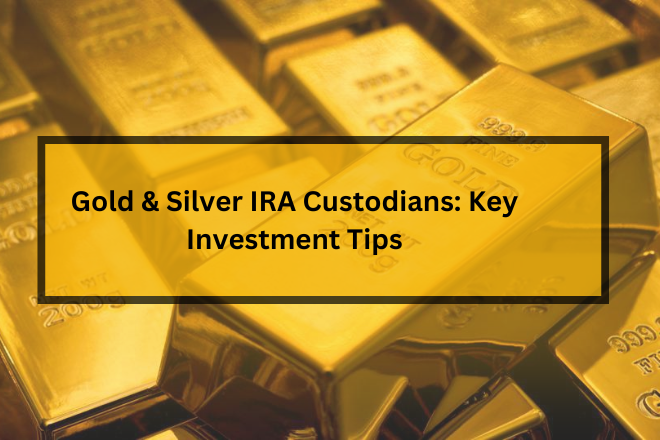Gold Storage Tips, How to Safely Store Your Precious Metals

When it comes to investing in gold, ensuring its proper storage is crucial. The value of gold makes it a prime target for theft, and improper storage can lead to damage or loss. Whether you’re holding gold bars, coins, or jewelry, knowing how to store it safely will help you preserve its value and protect your investment. In this article, we will provide essential gold storage tips to help you keep your precious metals secure.
Why Proper Gold Storage is Important
Gold is not just a valuable asset; it’s also a tangible one that requires physical protection. Proper storage helps prevent theft, damage, or loss, all of which can significantly impact the value of your gold holdings. By following the right storage practices, you can ensure that your gold remains in optimal condition and is ready for future use or sale.
Tips for Securely Storing Your Gold
Here are some practical tips for storing your gold securely, whether it’s in your home, a bank safety deposit box, or a professional vault.
Choose the Right Storage Location
Home Storage: If you decide to store gold at home, choose a location that’s both secure and discreet. Avoid storing gold in obvious places like under your mattress or in a regular drawer. Instead, consider a hidden safe or a secure location that’s not easily accessible.
Bank Safety Deposit Box: For additional security, consider renting a safety deposit box at your local bank. These boxes are designed to protect valuables and are a more secure option compared to home storage. However, note that you may need to check the bank’s hours of operation and insurance coverage for the contents.
Professional Vault Storage: Professional vaults offer high levels of security and are often equipped with advanced surveillance and protection systems. This option is ideal for those who hold large amounts of gold or want the highest level of security. Ensure that the facility offers insurance coverage and check their reputation before committing.
Use a Secure Safe
If you opt for home storage, invest in a high-quality safe that’s both fireproof and waterproof. A safe with a strong locking mechanism and reinforced walls will provide better protection against theft and environmental hazards. Anchor the safe to the floor or wall to prevent it from being easily removed.
Types of Safes: There are various types of safes available, including:
- Fireproof Safes: Protect against fire damage, which is important in case of a house fire.
- Waterproof Safes: Guard against water damage from floods or leaks.
- Burglar-Resistant Safes: Designed to withstand physical attacks and tampering.
Location of Safe: Place the safe in a concealed or less obvious location within your home. Avoid locations like the master bedroom or other obvious areas where burglars might look first.
Secure Gold in Protective Cases
For smaller pieces of gold, such as coins or jewelry, use protective cases or holders to prevent scratches and tarnishing. These cases should be made of materials that do not react with gold, such as non-reactive plastic or cloth. Store the cases in a dry and cool environment to avoid damage from humidity and temperature changes.
Coin Holders: Use coin holders or capsules that fit the size of the coin perfectly. These will help protect the coins from physical damage and dust.
Jewelry Boxes: For gold jewelry, use a jewelry box with soft, non-abrasive lining to prevent scratching. Avoid storing different pieces of jewelry together to prevent them from scratching each other.
Avoid Common Mistakes
Do Not Display Gold: Avoid displaying your gold in visible locations where it can attract attention. Keeping it hidden helps reduce the risk of theft.
Regular Checks: Periodically check your storage conditions and the physical state of your gold. Look for signs of damage or tampering and address any issues promptly.
Document Your Holdings: Keep an inventory of your gold holdings, including details like weight, type, and value. Store this information separately from the gold itself, such as in a secure digital document or a physical file in a different location.
Consider Insurance
Gold insurance can provide additional peace of mind by covering potential loss or damage. If you store gold at home, check with your home insurance provider to see if it covers high-value items like gold. For professional vault storage, verify that the facility provides insurance coverage for your gold.
Types of Insurance:
- Home Insurance: Often requires additional riders or policies for high-value items.
- Specialized Gold Insurance: Some companies offer policies specifically for gold and other precious metals.
- Keep Records: Maintain records of your insurance policy, including coverage limits and terms, in a safe place.
Understand the Legal and Tax Implications
Be aware of any legal or tax implications related to storing and owning gold. Different countries and states may have specific regulations or tax obligations related to precious metals. Consulting with a financial advisor or legal expert can help ensure that you comply with all applicable laws and regulations.
FAQs
What is the best way to store gold at home?
The best way to store gold at home is in a high-quality, fireproof, and waterproof safe. Ensure the safe is anchored and placed in a discreet location.
Are bank safety deposit boxes a good option for storing gold?
Yes, bank safety deposit boxes offer a high level of security and are a good option for storing gold, especially if you prefer not to keep it at home. Just make sure to check the bank’s insurance coverage and hours of operation.
How can I protect gold coins from damage?
Protect gold coins by storing them in protective cases or capsules designed specifically for coins. Keep these cases in a cool, dry environment to prevent damage from humidity and temperature changes.
Do I need insurance for my gold?
While not mandatory, insurance provides additional protection against loss or damage. Check with your home insurance provider or consider specialized gold insurance to cover your gold holdings.
What should I do if I suspect my gold has been tampered with?
If you suspect tampering or damage, inspect your gold carefully and address any issues immediately. If necessary, contact a professional appraiser or your storage facility for further assistance and security measures.
Conclusion
Storing gold safely is crucial for protecting its value and ensuring your investment remains secure. By choosing the right storage location, using a secure safe, protecting gold in cases, avoiding common mistakes, considering insurance, and understanding legal implications, you can effectively safeguard your precious metals. Whether you store gold at home, in a bank safety deposit box, or in a professional vault, taking these steps will help preserve your investment and provide peace of mind.






